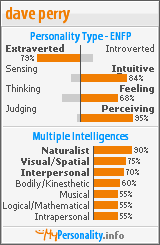What you see here is a nest of the European Hornet (Vespa Crabro). It is a quite extraordinary sight. The colony had taken over a bird nesting box which appeared to have fallen from an adjacent tree and lodged at the base of the hedgerow. The hornets were active in the warm afternoon sunshine of a late September day. Getting any closer would have been unwise. I took the photograph from a respectful distance and the high iso performance of the camera has penetrated the stygian shadow that enveloped the nest to reveal colour and form, if not a lot of close-up detail. With the onset of Autumn and frosty nights the majority of hornets in the nest will soon be dead.
Now we can look at this nest as a threat which we will be quite glad to see eliminated. Anyone allergic to wasp stings might well look at it in this way and be very uncomfortable in close proximity to the colony. Why take the risk and leave it be? Of course, from an ecological and natural history viewpoint, this could well be a gem of a discovery, something to appreciate and delight in finding. Where does the greater good lie and can both perspectives be reconciled? Given that the nest is by the side of a country lane, how real is the supposed threat? Might it simply be a case of not provoking the hornets in the first place? Is coexistence possible?
‘The Hittite perspective’ sounds like it could be the next release in the Bourne films franchise, where the motives and behaviour of government agencies are called into question and the dark side of their operations are exposed. And all of this is framed from the viewpoint of someone who was once part of the system but who now finds themselves to be a threat which must be eliminated. The warped and distorted nature of self-justifying power without accountability is put on display. Which brings me to the Hittites. In the Bible these people, and many others, are labelled as threats to be eliminated. In a spirit of ‘name it as it is’ what we have here is ethnic cleansing. It makes for appalling reading. The cost of entry into the land of promise is stark and uncompromising:
Deuteronomy 7.1: When the Lord your God brings you into the land that you are about to enter and occupy, and he clears away many nations before you—the Hittites, the Girgashites, the Amorites, the Canaanites, the Perizzites, the Hivites, and the Jebusites…
Deuteronomy 20.17: You shall annihilate them—the Hittites and the Amorites, the Canaanites and the Perizzites, the Hivites and the Jebusites—just as the Lord your God has commanded….
These ethnic groups are not to be appreciated for their diversity, they are to be annihilated because they are different and in the way. No doubt this genocide was sold to the people of God on the basis of threat and danger, with the Hittites and others being depersonalised and dehumanised in the process. It all sounds chillingly familiar. Seen from the Hittite perspective, from the underside of history where the agony of the voiceless is unrecorded, such religious and political imperialist aggression is a monstrous stain on history itself. It has no justification.
How radical then is the teaching of Jesus who eschews violence and aggression and asks that we love our enemies and others as he loves us? His way of appreciation subverts endemic cycles of violence and stereotyping, whether by states or individuals, in favour of open encounter. He is the voice of the voiceless and disempowered. He is to be met on the underside of history. He challenges us to reframe our attitudes and values from this uncomfortable perspective.
Our feelings about the hornets nest are but a step away from the politics which uses threat as its fulcrum. But there is an alternative. And Jesus sets the precedent.








Great photo. These thoughts (and Jesus' precedent) challenge what seems to be socially hardwired into most of us: Anthropological/Sociological research seems to show that we don't like 'liminality'-neither one nor the other, and see the transgression of boundaries as pollution. Whilst we're not into ethnic cleansing at the moment (who knows what will happen to 'civilised' people in the wrong circumstances), how do we tolerate difference and hold the internal tension we feel that wishes to convert others into a stable, classifiable state?
ReplyDeleteThanks AM for a very thoughtful comment. The 'dignity of difference' is one of the key challenges facing all of us.
ReplyDelete